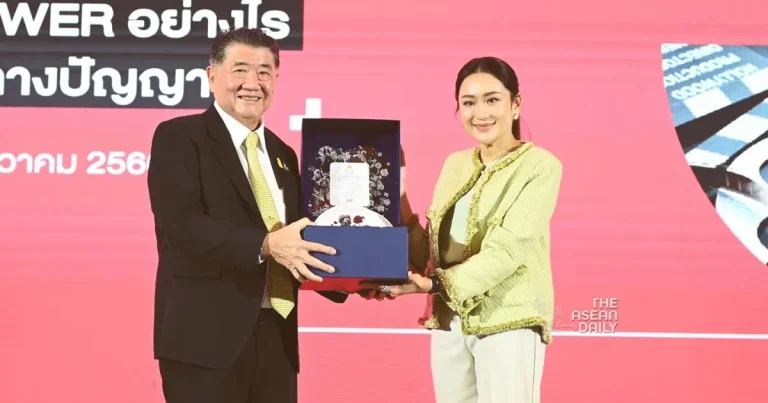15-12-2023 (BANGKOK) Commerce Minister Phumtham Wechayachai announced on Thursday that the government has set a target to create 20 million new jobs and generate 4 trillion baht in revenue for the Thai population through its soft power promotion policy.
Phumtham, who also serves as a deputy prime minister, expressed his hopes that soft power would play a crucial role in increasing income for Thai citizens and driving the country’s economic development.
The minister explained that Thai soft power, derived from the nation’s cultural abundance and transformed into intellectual properties, would contribute to boosting the national economy and enhancing international trade. The ultimate goal is to propel Thailand beyond the “middle-income trap” and position it as a “high-income country” in the future.
This initiative is part of the government’s comprehensive “One Family, One Soft Power” policy, which encompasses 11 key economic sectors. These sectors include tourism, sports, food, film, music, arts, fashion, gaming, and design.
Phumtham made these remarks while presiding over the event titled “Empowering Thai Entrepreneurs with Soft Power x Intellectual Property” held at a prominent hotel in Bangkok. The event was attended by Paetongtarn Shinawatra, the head of the government’s national committee on soft power development, as well as Keerati Rushchano, the permanent secretary of the Commerce Ministry, and other senior ministry officials.
Both Phumtham and Paetongtarn hold significant positions within the ruling Pheu Thai Party. Paetongtarn, in her capacity as the head of the national committee on soft power development, emphasized on Thursday that the government’s focus is on promoting Thai soft power across various industries.
“In attempting to define soft power, we may overlook the bigger picture. The government’s efforts go beyond mere definitions. We are actively promoting Thai soft power across diverse industries to create economic value for our country,” she stated.
In addition, Surapong Suebwonglee, another influential figure within the ruling party, revealed that the government’s working group responsible for organizing Songkran celebrations aims to generate an estimated 35 billion baht in revenue during the traditional Thai New Year in April. The festivities, often referred to as “the world’s largest water fight,” will attract tourists to all 77 provinces of the country.
To maximize the economic benefits, the government plans to extend the Songkran celebrations throughout the entire month of April, as opposed to the traditional three-day period from April 13 to 15.
By capitalizing on the potential of soft power and leveraging cultural assets, the Thai government is striving to create substantial employment opportunities and boost revenue, envisioning a prosperous future for the nation.




